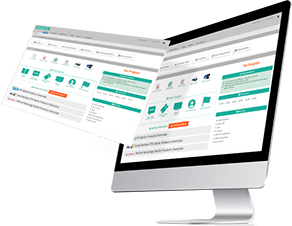Introduction
Waiting until March to think about taxes can be costly—both financially and emotionally. Effective tax management isn’t seasonal—it’s perpetual. Year-round tax planning positions you to capture benefits, adjust strategies, and steer clear of surprises. At Ultimate Tax & Accounting, we don’t just file returns—we partner with clients to build tax-smart habits that pay dividends all year long.
1. Why Year-Round Planning Matters
-
Avoid Last-Minute Errors: Rushing increases risk of missed deductions, incorrect forms, and IRS notices.
-
Optimize Cash Flow: Predictable tax payments help you budget more effectively and avoid shocks.
-
Capitalize on Opportunities: Retirement contributions, harvesting losses, or business credits all require ongoing awareness.
-
Reduce Stress: An organized approach turns tax season into a routine checkpoint—not a panic-inducing deadline.
2. Quarterly Checkpoints for Better Tax Posture
| Quarter | Focus Areas |
|---|---|
| Q1 (Jan–Mar) | Review prior-year return, update withholding, fund IRAs/HSAs by deadlines |
| Q2 (Apr–Jun) | Pay estimated taxes, evaluate self‑employed deductions |
| Q3 (Jul–Sep) | Mid-year income review, adjust business forecasts, plan capital gains |
| Q4 (Oct–Dec) | Finalize charitable giving, bunch deductions, set withholding for next year |
3. Leverage Retirement & HSA Benefits
-
Maximize IRA & 401(k) Contributions: Up to age 50+, $7,500/year in IRAs or higher in workplace plans—these reduce taxable income today.
-
Health Savings Accounts (HSAs): Contribute $3,850 (individual) or $7,750 (family) in 2025. Funds can grow tax-free and be used for medical expenses indefinitely—an underutilized wealth-builder.
4. Strategic Business Owner Planning
-
Entity Selection: Choosing between LLCs, S-Corps, or Partnerships affects tax rates, self-employment tax, and deductibility.
-
Deductions & Credits: Quarterly planning allows you to track business expenses—from vehicle use to home office costs and R&D credits—without scrambling in March.
-
Retirement Options: SEP-IRAs, Solo 401(k)s, and Defined Benefit Plans can greatly reduce taxable income for the self-employed.
5. Harvest Losses and Time Gains
-
Offset Gains with Losses: Selling investments at a loss to balance gains in other holdings can reduce capital gains tax.
-
Tax-Loss Carryforwards: Excess losses can carry forward indefinitely—worth tracking before year-end.
-
Timing is Key: Long-term gains (assets held over a year) are taxed lower than short-term. Hold when possible.
6. Optimize Deductions & Credits
-
Bunching Deductions: Combine charitable gifts or medical expenses into one tax year to exceed deduction thresholds.
-
Energy-Efficient Home Upgrades: Credits exist for insulation, solar panels, and efficient heating systems—track receipts.
-
Education & Family Credits: Child Tax Credit, American Opportunity Credit, and credits for dependent care are worth tracking quarterly to ensure eligibility.
7. Watch Withholding & Estimated Taxes
-
Avoid Underpayment Penalties: Adjust W-4 as income changes; pay estimated taxes if withholding won’t cover liability.
-
Self-Employment Strategies: Use safe harbor rules to avoid penalties; review each quarter for accuracy.
- Tax Withholding
8. Plan for Life Events
Significant changes—like marriage, business startup, real estate purchase, or educational expenses—should trigger a mid-year tax review. Adjust withholding, entity structure, or estimated payments accordingly.
9. Build a Tax Filing Checklist
An organized mindset simplifies preparation. Items include:
-
Income statements (W-2s, 1099s, K-1s)
-
Expense documentation
-
Retirement/HSA contributions
-
Volunteer mileage and charitable documentation
-
Estimated tax payment records
10. Choose the Right Tax Partner
A tax advisor should offer more than filing service—they should:
-
Proactively review your financial picture
-
Present actionable recommendations
-
Stay updated on tax law changes
-
Offer digital tools for easy document collection
At Ultimate Tax & Accounting, we combine expertise with proactive service to support both annual filings and ongoing planning for individuals and small businesses.
Summary
Year-round tax planning isn’t just responsible—it’s liberating. It helps you:
-
Reduce your tax liability
-
Smooth out cash flow
-
Avoid audits and IRS penalties
-
Make informed decisions about investments and expenses
Adopting proactive strategies—covering retirement, investments, business, and life events—transforms tax season into a strategic checkpoint, not a deadline scramble.
If you have questions about proactive planning or want personalized guidance to better manage your taxes, feel free to contact Ultimate Tax & Accounting for support.






